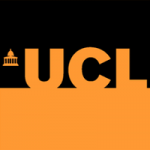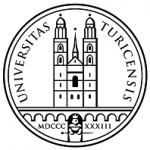项目介绍
Overview
The UCL Linguistics research department is known internationally for its outstanding work in all areas of theoretical linguistics and for its growing strength in experimental work. Our staff carry out research aimed at discovering the nature and origin of the principles and representations that characterise human language, its acquisition by children, its neural basis in the brain, and its use in communication. We encourage and facilitate cross-disciplinary interaction with psychologists, cognitive scientists and philosophers working on language and communication both at UCL and elsewhere. Undertaking a research degree in this department means you will be supervised by scholars who are leaders in their field with the expert up-to-date knowledge needed to guide you in shaping your own original research contribution.
Research areas
The research department is pre-eminent in theoretical and experimental linguistics, especially in syntax, semantics and pragmatics, phonology, and normal and abnormal language development.
- Language development: language acquisition (syntax morphology and lexicon); development of communicative and pragmatic abilities; experimental pragmatics; pragmatics and atypical development
- Neurolinguistics: semantic, syntactic and morphological deficits in aphasia; noun-verb differences in different populations; British Sign Language
- Phonology: relation between phonological representations and the speech signal; syllable typology; phonological variation and change
- Semantics and pragmatics: relevance theory; philosophy of language; the semantics/pragmatics interface; formal semantics and pragmatics; foundations of communication; semantic/pragmatic deficits in autism and other syndromes
- Syntax: ellipsis, word order typology, syntax of phi-features, syntax-semantics interface, syntax-morphology interface; syntactic and morphological deficits in aphasia and other syndromes; (research is carried out in a broadly Chomskyan framework).
More information can be found on the department website: Linguistics MPhil/PhD
About this degree
Additional costs
For more information on additional costs for prospective students please go to our estimated cost of essential expenditure at Accommodation and living costs.
Accessibility
Details of the accessibility of UCL buildings can be obtained from AccessAble accessable.co.uk. Further information can also be obtained from the UCL Student Support & Wellbeing team.
Funding
To be admitted as a research student, applicants usually obtain a source of funding from a recognised funding body. To be eligible for any funding opportunities it is essential that you have identified a research supervisor and have agreed a research project with them.
Applications for UCL competitive funding must arrive by late December/early January for entry in September/October the following year.
You are strongly advised to contact and work with your supervisor on your application for funding.
Funding opportunities include:
• Demonstratorship in Linguistics
• UCL Graduate Research Scholarships:
• GRS
• ORS
• CSC-UCL
• AHRC-LAHPDoctoral Training Partnership
• ESRC-UCL, Bloomsbury and East London Doctoral Training Partnership
For a comprehensive list of the funding opportunities available at UCL, including funding relevant to your nationality, please visit the Scholarships and Funding website.
For a comprehensive list of the funding opportunities available at UCL, including funding relevant to your nationality, please visit the Scholarships and Funding website.
Careers
Demonstratorship in Linguistics
The demonstrator will be paid for a total of 180 hours per year, and in return their tuition fees will be paid at Home/EU rate and they will receive a full stipend. The position involves teaching and administrative support related to the BA, BSc and MA programmes in Linguistics. The post-holder will provide assistance with a variety of aspects of the programmes.
Employability
The skills and knowledge gained from this research degree include: specialist knowledge of phonology, syntax, semantics or pragmatics as required to become a teacher/researcher in academic linguistics; expert grasp of specific language issues or problems leading to a range of linguistically oriented careers, for example being a legal court interpreter, a speech and communication therapist, a field linguist, translator or recorder of endangered languages; expertise in experimental techniques for studying language processing, equipping graduates for research work in a language lab; precise knowledge of computational techniques leading to potential work with IT businesses.
Networking
The opportunities for networking are vast as we invite many eminent international linguists and enable our students to attend seminars and conferences in the UK and overseas. Completion of a research degree with us will give you excellent credentials for entry into the competitive international linguistics job market.
Why study this degree at UCL?
UCL Linguistics is outstanding in itself and also has wide-ranging links with other excellent linguistics departments across London. Our doctoral students are supervised by world leaders in the field. Located within the Division of Psychology and Language Sciences, cross-disciplinary training and joint supervision is possible (with scholars in psychology, neuroscience, speech science, etc.). We run additional graduate-level training, ‘Advanced Core Training in Linguistics’, taught by eminent scholars from the UK and beyond.
Department: Linguistics
What our students and staff say
Student review
“I love the problem-solving aspect – finding a set of data and trying to work out an analysis. In some ways my work is very scientific, almost mathematical, and I enjoy spending time thinking in the abstract. At the same time, coming up with good datasets to look for is creative, and lets me play with language in a more artistic way.”
ZOE BELK
Linguistics MPhil/PhD
Student review
“The multidisciplinary nature of my degree programme is definitely its most attractive and exciting feature. Linguistics can really cut across several fields: philosophy, medicine, machine learning…”
CATERINA PAOLAZZI
Linguistics PhD
Student review
“There are lots of chances to do interdisciplinary work with the way that the Psychology and Language Sciences division is set up. I started out doing philosophy, then linguistics, and now I’m learning techniques from experimental psychology. These different skillsets have been really useful for my PhD work.”
LEWIS POLLOCK
Linguistics PhD
Application and next steps
Applications
Students are advised to apply as early as possible due to competition for places. Those applying for scholarship funding (particularly overseas applicants) should take note of application deadlines.
This programme requires two references. Further information regarding references can be found in our How to apply section.
Application deadlines
All applicants30 July 2021
For more information about the application process, see our Applications page.
For more information see our Applications page.
录取要求
-
Normally a minimum of an upper second-class Bachelor’s degree or a Master’s degree in a relevant discipline from a UK university, or an overseas qualification of an equivalent standard.
联系方式
电话: +44 (0) 20 7679 2000相关项目推荐
KD博士实时收录全球顶尖院校的博士项目,总有一个项目等着你!






